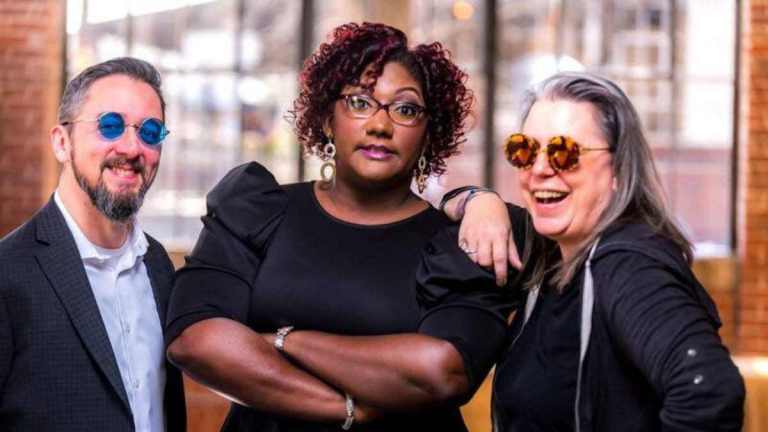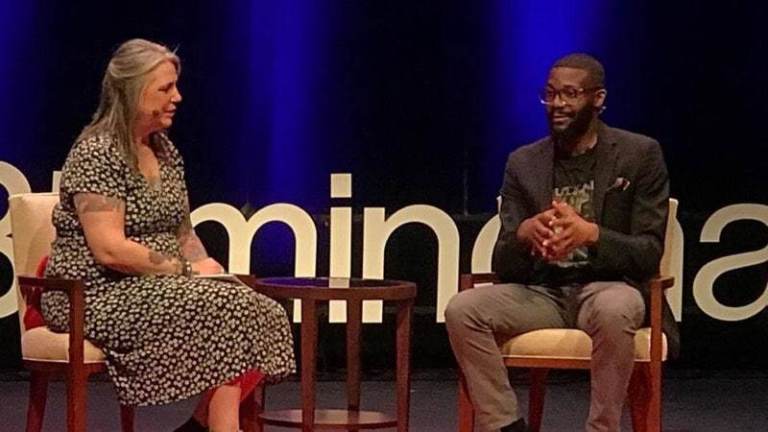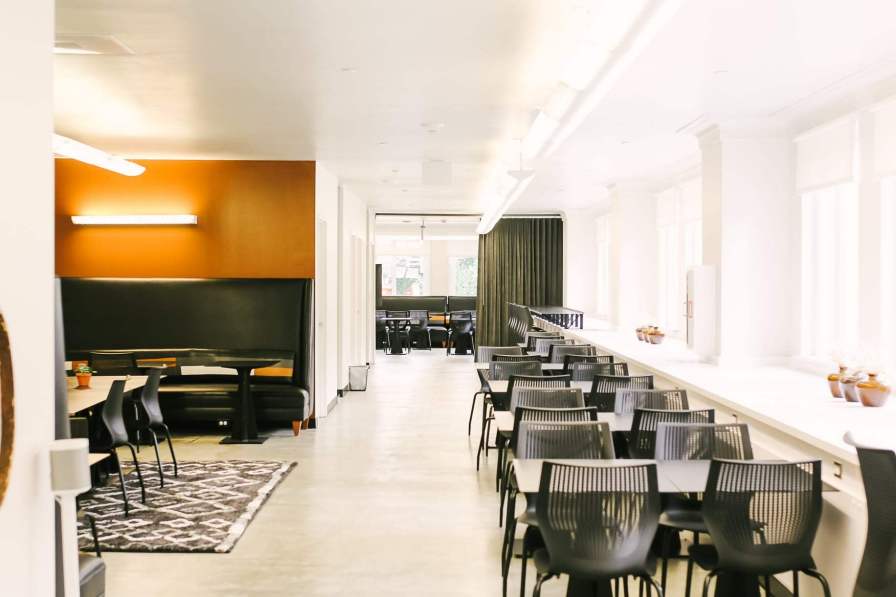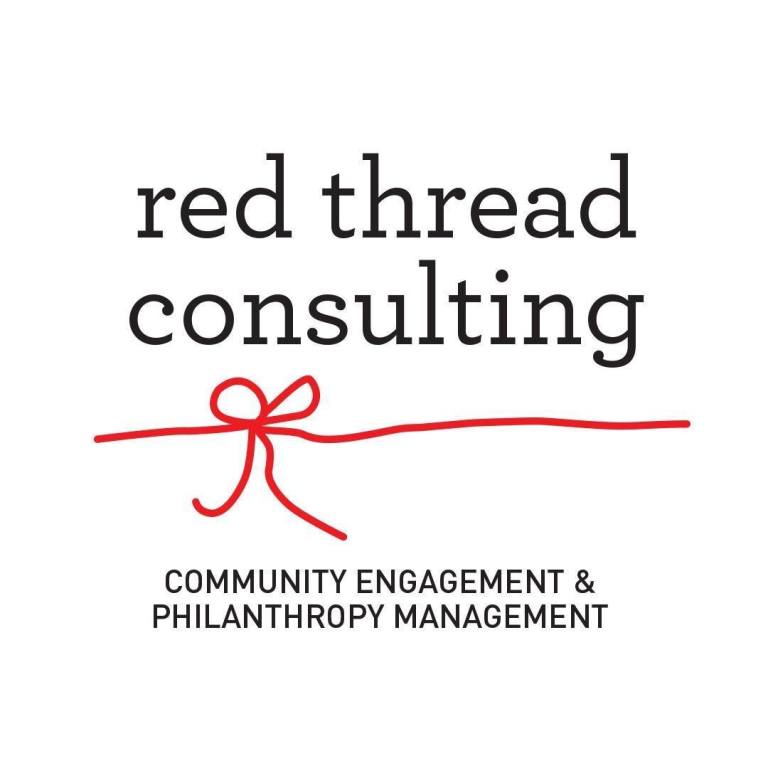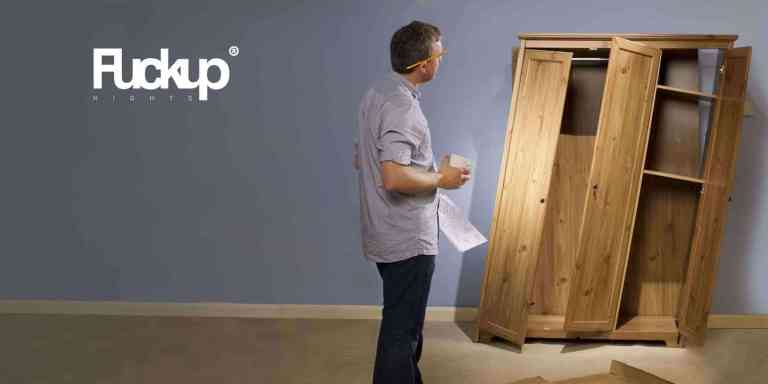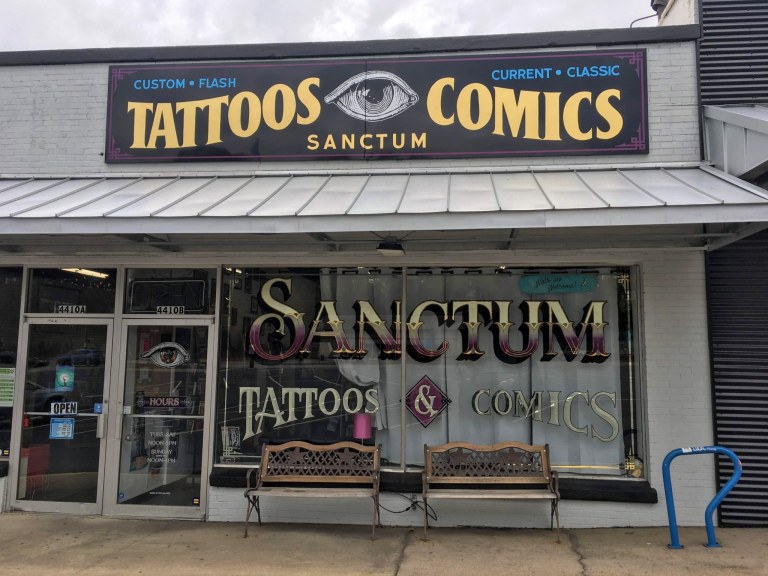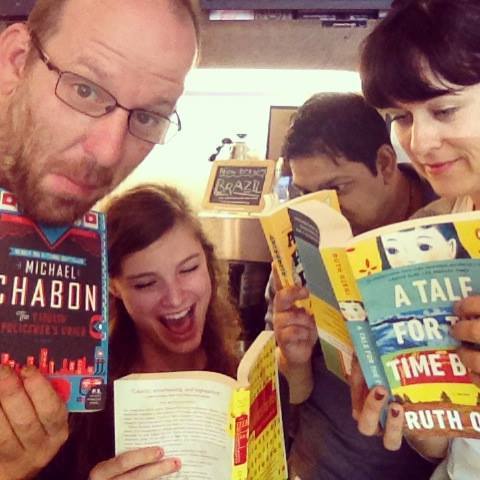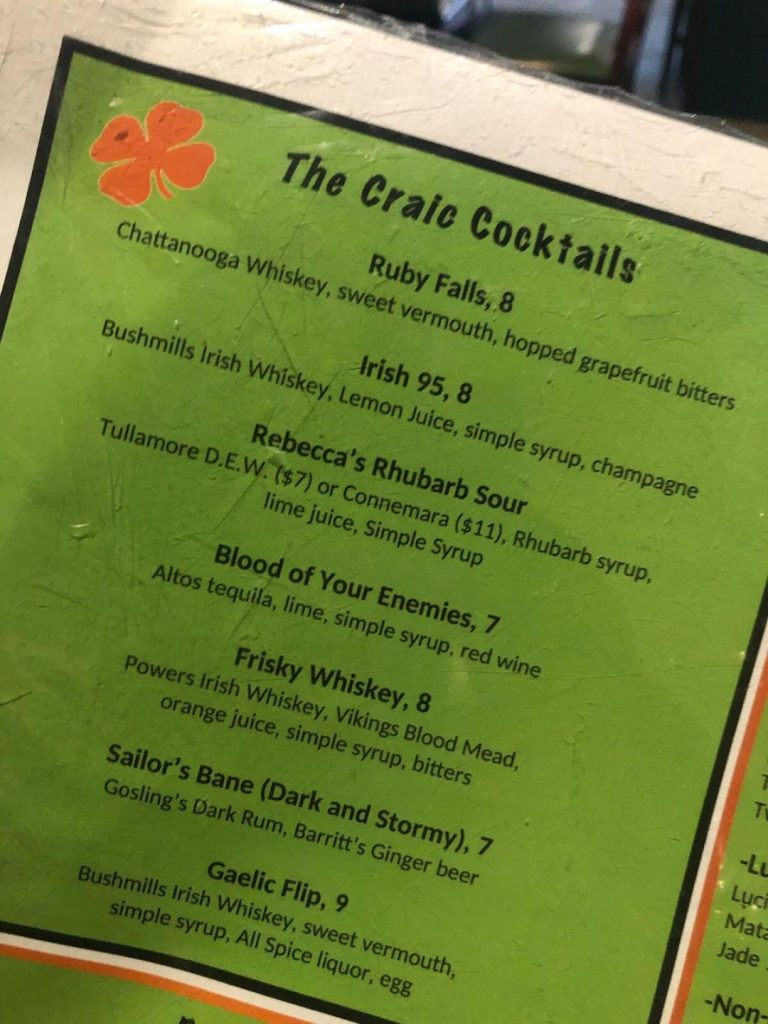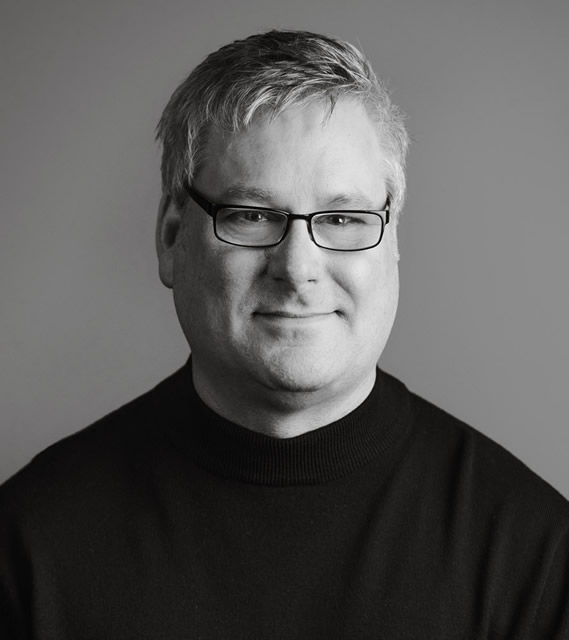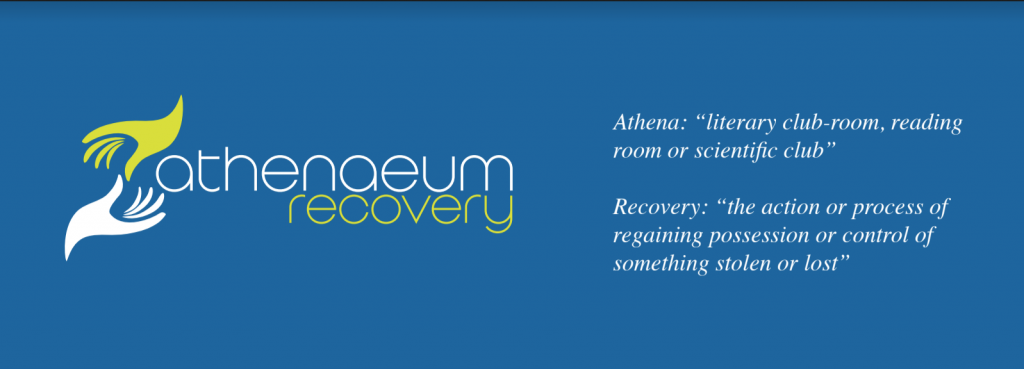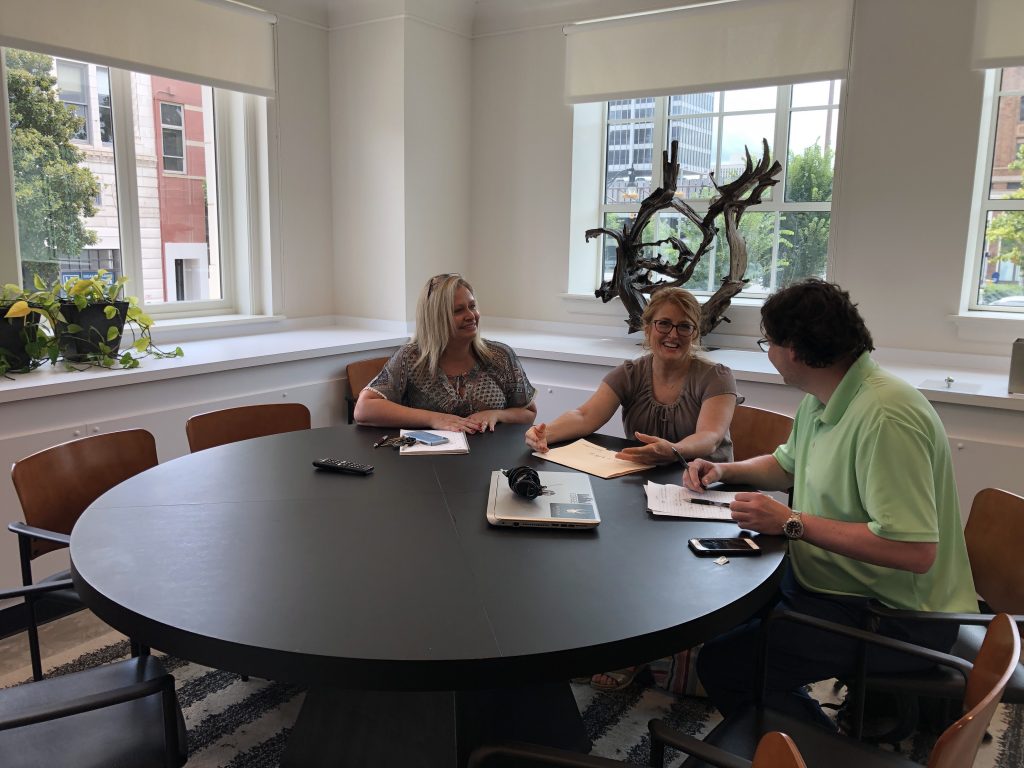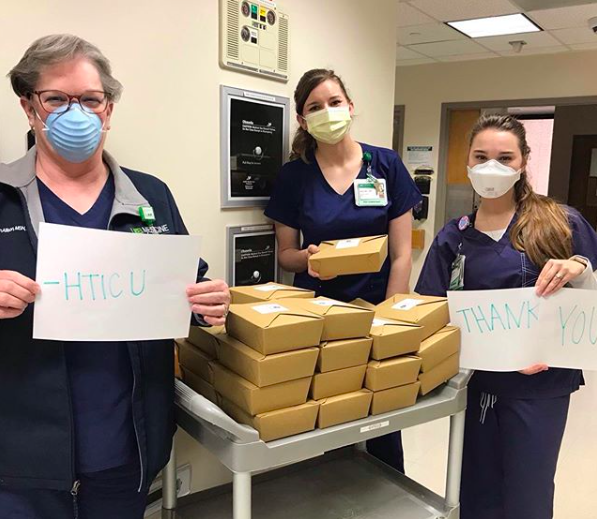
Member Spotlight |
During the COVID crisis, CareHealth is providing meals to healthcare professionals across Birmingham. By utilizing local restaurants as their food providers, CareHealth is pouring resources back into the Birmingham small business community. CareHealth is an initiative of Urban Avenues and we love having Madison Kerns, Director of Operations at Urban Avenues, as part of the Forge community! Read on for our Q&A about how they are serving Birmingham during this pandemic!
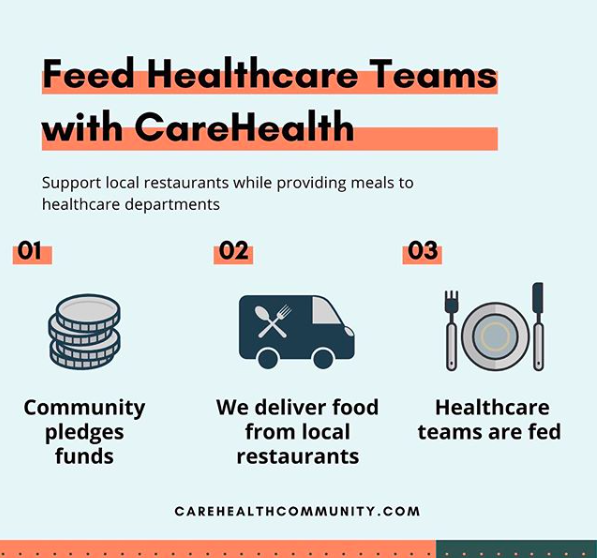
How did you get the inspiration for the idea?
Our venture Five Loaves is focused on uniting communities through food, so we’ve always had a heart for the restaurant community in this city. While we were trying to think of ways to support our friends in the industry, we were seeing groups in cities like San Francisco and New York feeding healthcare teams with food from local restaurants.
We hit the ground running, formed the idea into a model that worked well for our organization, and worked with restaurant owners and healthcare professionals to make sure we had a system that prioritized safety and maximized our impact. In two days, we had a full list of restaurant partners, a website, and team of volunteer drivers!
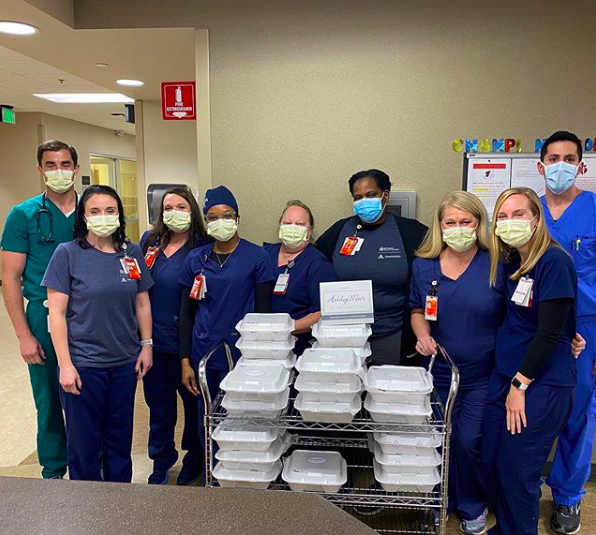
What kind of response have you gotten from the healthcare community, local restaurant owners and donors about your efforts?
The response has been so overwhelmingly positive. The community has been incredibly supportive and are truly the only reason we can do what we do. They’re eager to serve Birmingham while maintaining safety, and CareHealth has created an easy way to do both.
Healthcare teams are sending thank you emails, photos, and cards daily. They’re feeling the support of the community and have expressed how it fuels them to face COVID-19 every day. Our restaurant partners have been wonderful throughout this entire pandemic!
It’s a difficult time for their industry, but their main focus has been giving back to the healthcare teams. It’s such an honor to support them and create a space for them to serve the healthcare communities.
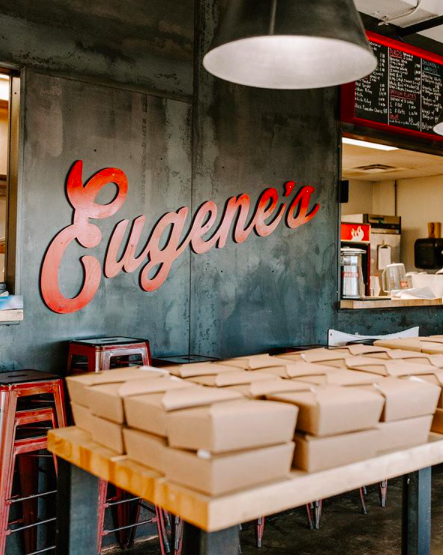
So far, how many meals have been served? And how many departments have received food?
We’ve served over 2,500 meals across 65 departments thus far! We’re working over 15 hospitals and healthcare facilities across the Greater Birmingham Area to deliver meals to their teams and show the community’s support.

How long do you think the CareHealth initiative will last? Do you plan to continue the efforts post COVID?
Even as we hear plans to reopen states, we are still, unfortunately, far from normal. CareHealth was created to be a community response for those fighting COVID-19, and we plan to follow through on that mission until it is no longer needed. We’re open to the possibility that our model may change in the coming months to include other types of first responders and are beginning to plan for potential shifts in how we operate. Until then, we’re excited to increase our meals served each week!
We love seeing members of the Forge community out serving Birmingham- especially during a time like this!
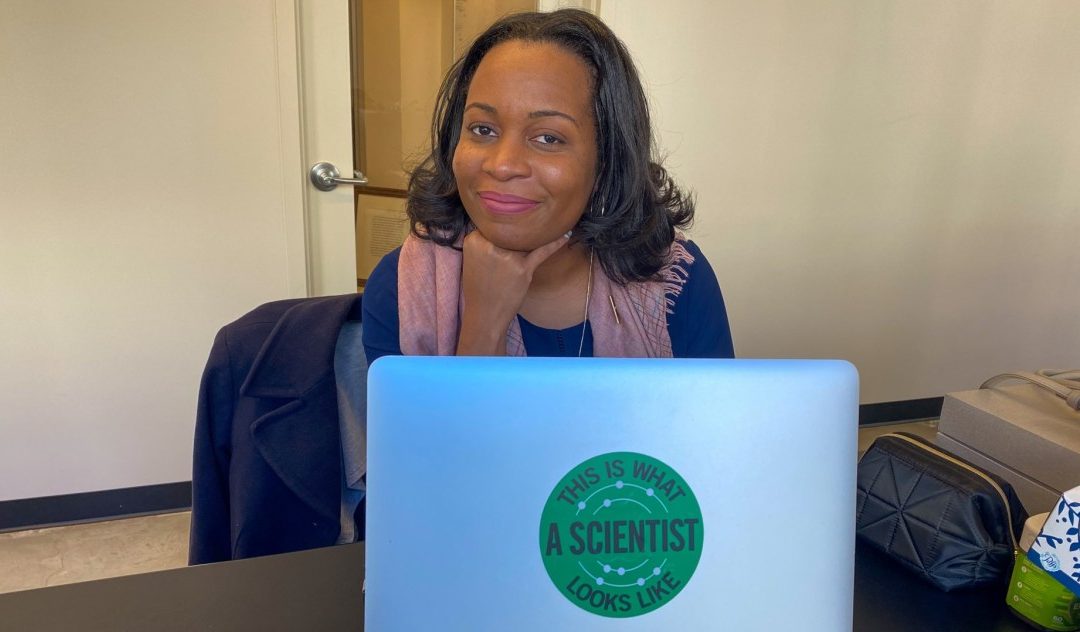
Member Spotlight |
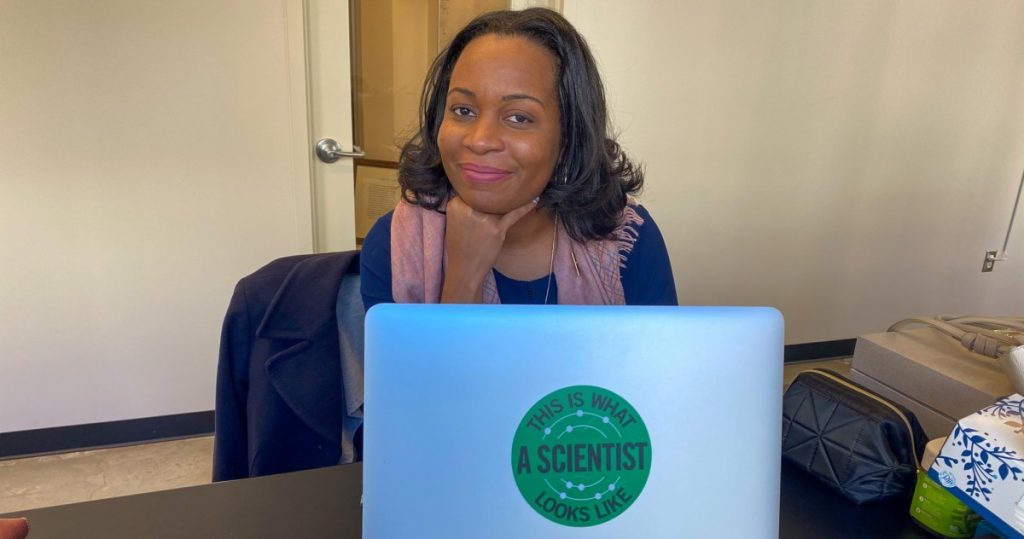
Dr. Adrienne Starks of Stream Innovations works at Forge (Bham Now)
Bham Now recently wrote this story about Forge member Dr. Adrienne Starks of STREAM Innovations. Read on about the amazing work she is doing!
You can’t spend any time with Dr. Adrienne Starks without realizing she’s on a mission. Part of that mission is to help turn Birmingham’s young people on to the thrill of discovery. She’s doing that through STREAM Innovations, a nonprofit she founded in 2015 to bring science, technology, reading, engineering, arts and math to students in her hometown of Fairfield and beyond.
Read on to find out how she’s making a difference here with STREAM and across the globe with a new ambassadorship.
1—Dr. Adrienne Starks was just named one of 125 IF/THEN ambassadors for women in STEM .
Getting selected for this ambassadorship is no small feat. This rockstar cohort of 125 women from across the country includes two women from Alabama, and Dr. Starks is one of them.
Before she came home to Alabama, she worked at the National Institutes of Health (NIH) doing cancer research comparing African American and European populations, and before that she did genetics research.
In her new role, she gets to represent Alabama and serve as a role model and source of inspiration for middle school girls.
Find out more about If/Then. Contact Dr. Starks at communication@streaminnovations.org about speaking engagements.
2—Why STREAM Innovations?
When I asked Dr. Starks what led her from doing cancer research at the National Institutes for Health (NIH) just outside DC to starting STREAM Innovations here in Birmingham, here’s what she said:
“Students in underrepresented or underserved communities don’t get the same level of expsoure that students in other places get. This includes Alabama as a whole, compared to what students on the East coast or West coasts get.
It’s important to see people who have the same passion you do. It gives young people courage to say ‘I’m gonna try something I’ve never seen anyone here do. That can take you places you’ve never imagined.”
Learn more about STREAM Innovations.
3—Science is the best travel plan.
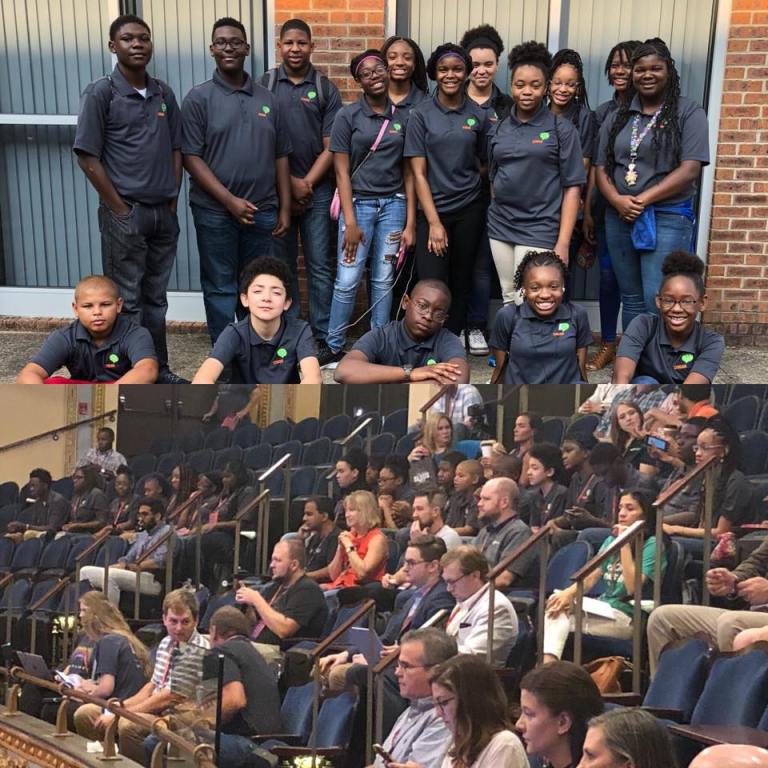
Dr. Starks, as a triple minority in many spaces within the scientific community—meaning a woman, US-born and African American—discovered that science is the “best travel plan.”
For her, it’s been amazing to have the opportunity to network and develop collaborations with people anywhere around the world on the basis of shared passions. “You get to go to some of the most amazing conferences all over the world doing the thing you love.”
She loves helping to open doors to these types of opportunities to young people in the Birmingham area.
“Science removes a lot of barriers. Society tries to seprate us in a lot of ways – gender, class, race, exposure, what country we’re from. But if you have a paper in Nature, Science or another journal, your Southern drawl doesn’t matter.
Fellow scientists will look over accents, whether it’s a really heavy German, Nigerian, Dutch or Southern accent. They want to hear from you because you’re the person that came up with something they’re interested in. That’s the beauty of it, in my opinion.”
4—Dr. Starks’ journey from Fairfield into scientific spaces.

“I always wanted a microscope as a kid for Christmas. When I got a microscope, it gave me the opportunity to see something new, first from prepared slides, then from my own slides. From there, I did summer science programs at UAB. There weren’t a lot of people from Fairfield in my programs.
Once I did the first program, I knew there were other programs like this. I did a program just about every summer.
When I graduated from Fairfield, I went to Alabama A&M on a full scholarship. I have two younger siblings and wanted to make sure there was no issue for them scholarship-wise. Now my younger brother, who was always building with Lincoln Logs and Erector Sets is an architectural engineer, and my sister, who was always taking care of anyone who got hurt, is an RN.”
5—Dr. Starks’ nephew was the inspiration for STREAM Innovations.

“When I moved back to Birmingham in 2014, my nephew would say ‘auntie is a scientist.’
But one day when he was six, he questioned my credibility as a scientist because he never saw me at the bench; he only saw me at meetings.
So I went and bought a bunch of chemicals and put together a notebook for age appropriate experiments he could do with me. I was there to make sure he didn’t burn himself, but he was allowed to do things wrong. I wanted him to see real science is not perfect.
This turned into the prototype curriculum for STREAM. I pressed on him the importance of imagination, because imagination is a huge part of science.
That same nephew is now engulfed in space. He loves all things NASA, universe, planet.
So when he’s building Spaceships with Legos, I ask him what his spaceship needs to work. We play imaginary games where he has $1 million create what he thinks is necessary to put on the International Space Station. Then I look at it and ask “well, what about this, how will you eject from it, how will it connect to different things” and I send him back to add more pieces.”
6—Imagination is everything in science.
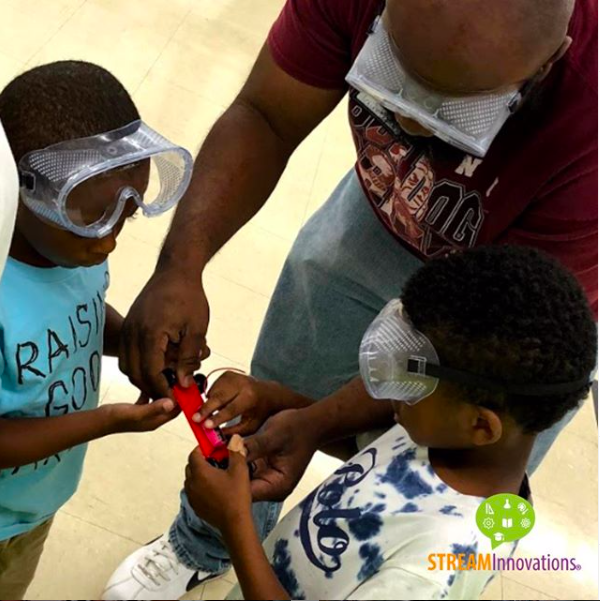
Dr. Starks is passionate about the importance of imagination, and indulging young people in the thing that sparks their interest. She gets great joy from doing this with her nephew—and now with the young people who are a part of STREAM Innovations.
“We start with students in the third grade, because we want to be able to throw a little bit of everything at them. The world they’ll be growing up in will be different. We want to help them be open to new things, to be creative and able to articulate ‘yes, I like this. No, I don’t like engineering (or whatever) and here’s why.’
I want to support kids in finding the things they love to do. The love of that first microscope carried me all the way to grad school and postdoc. That muscle memory I developed as a kid working with microscopes made it second nature to spend hours focusing. I don’t get frustrated, because I have the muscle memory to do the thing I love.”
7—STREAM Innovations helps young people think in new ways
“I run a nonprofit called STREAM innovations. We add Reading and Art to STEM because we wanted to show students what they could do with those as well. We combine disciplines and passions with whatever’s coming next in our world.
While I definitely try to connect careers to that, I also always try to leave a window open for students to think of things we’ve never seen before, by using technology or know-how of a particular industry to innovate for what we need next.
We intentionally partner with libraries and rec centers in underrepresented and underserved communities. Transportation to get to places like the McWane Center or UAB can be cost prohibitive.”
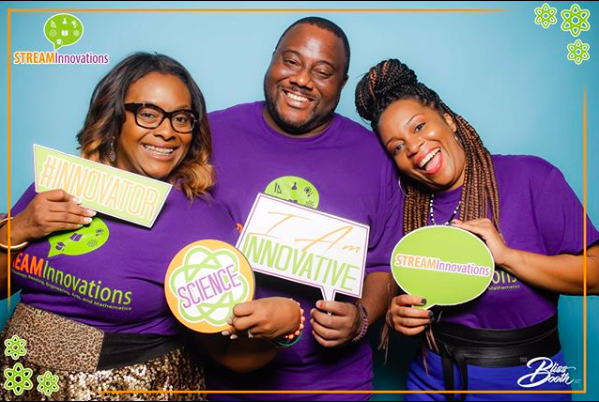
Here are some of the topics STREAM Innovations has done:
- Robotics and tech.
- Plants and agriculture, germination and hydroponics.
- How we power our world: solar, wind, water, electricity.
- How the human body works: where are the organs and what do they do?
- Bridge building competition.
- Physics with Lego derby challenges: kids build a lego car and race it multiple times on a 38-foot ramp.
This last one really caught my attention because my kids have done the Pinewood Derby at Cub Scouts. What’s cool about the Lego derby challenge is that they get to understand the physics behind why their car is dragging behind or winning, and they can continue to rebuild and race as much as they like. A true scientific process.
8—Who teaches at STREAM Innovations?
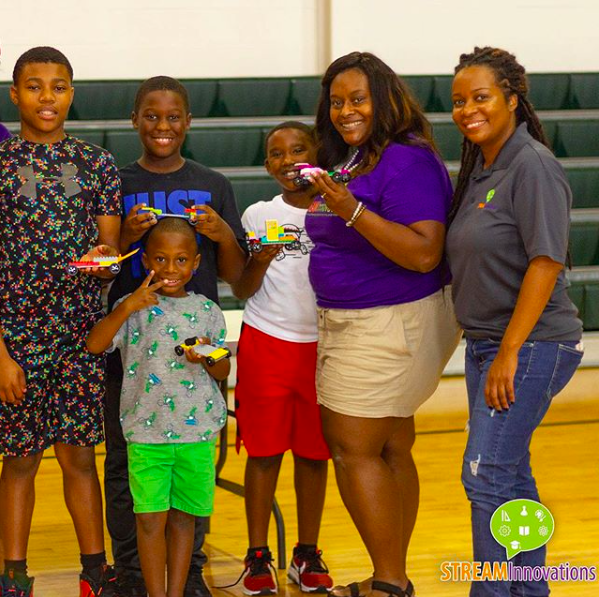
“We call our instructors Champions because they serve as a ‘champion’ for their success. We have a mix of volunteers and paid staff. Many are from local companies, and some are individuals who want to support students to learn something new.
We encourage the champions to support with a ‘hands-off’ approach so they have the opportunity to fail safely and delight in the process of figuring out how to get it right.”
9—STREAM Innovations runs three key programs.
Library after school programs
- 3rd-6th graders
- Open to anyone
- 3:30-4:30 one afternoon a week
- In previous years, June, July, August and September
- STREAM swag for students to take home (microscopes, Legos, cool things to inspire kids to keep learning)
Also, librarians pull books related to the topic and encourage parents and students to check them out.
STREAM Saturdays
- Saturdays, 9:30AM-1PM
- In previous years, June, July, August and September
- $50 fee per student
- Want to take as many as 100 kids
- From across Birmingham and Jefferson County
- Breakfast and lunch provided
- Yoga for mental and physical health
- 2-hour round robin to different stations
- STREAM swag (something connected to the topic)
Kids also get to take home whatever they were working on during their time there.
Previously, these programs operated in Ensley, West End, Inglenook and North Birmingham. STREAM is looking for new communities to serve.
Both the library and rec center programs were funded last year with a grant from UAB’s Community Health Innovation Award.
Coding bootcamps—6 week summer programs
1st year:
- Web design, with HTML, CSS, jQuery, JavaScript.
- Leadership development, financial literacy and entrepreneurship.
- Friday field trips to local tech companies so they can see what it would look like to potentially work in a company or start your own company.
- Yoga.
2nd year:
- Python.
- App development.
- AI via Google AI kits.
3rd year:
- Computer Hardware repair.
- Comptia A+ Certification prep
The recent 3rd year graduates are eager to start a student-run business building off of their 3 years of computer and tech experience. STREAM Innovations is looking for people who would like to help them with this project.
To get in, rising 7th and 8th graders apply online.
All programs are open to anyone who would like to attend. Coding bootcamps draw kids from public school, private school and homeschoolers. Essays are required with applications to show genuine interest in coding.
STREAM is currently fundraising to run these three programs this year.
If you think STREAM Innovations is as awesome as I do after spending an hour with Dr. Adrienne Starks, and you want to learn more or get involved, we’ve got all the details for you right here:
STREAM Innovations
IF/THEN Initiative
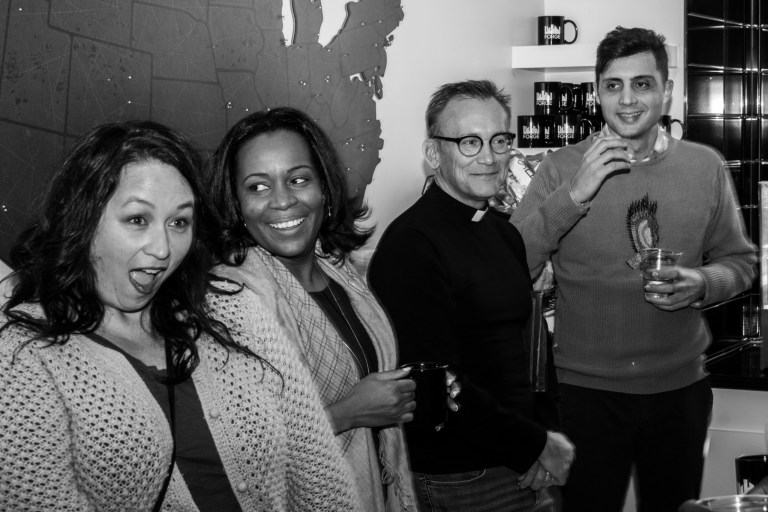
STREAM Innovations is headquartered at Forge, a fabulous coworking space on the second floor of The Pizitz. Social entrepreneurs like Dr. Adrienne Starks get to create what they love in the company of other movers and shakers in a shared space that’s a cross between a library and a coffee shop. Schedule your tour today.
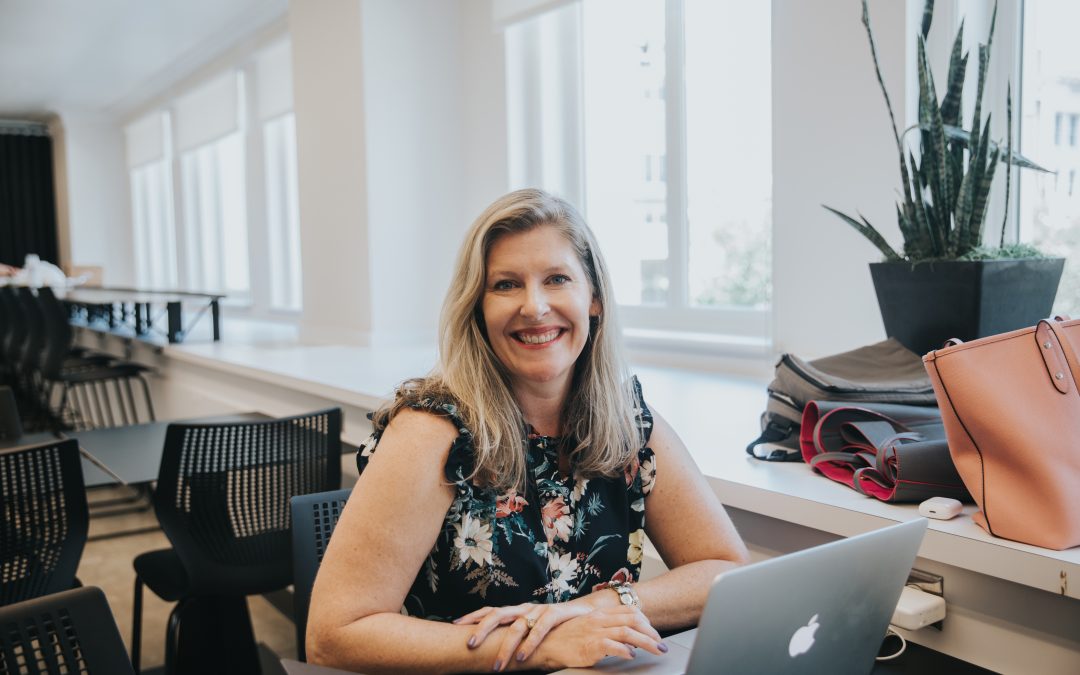
Member Spotlight |
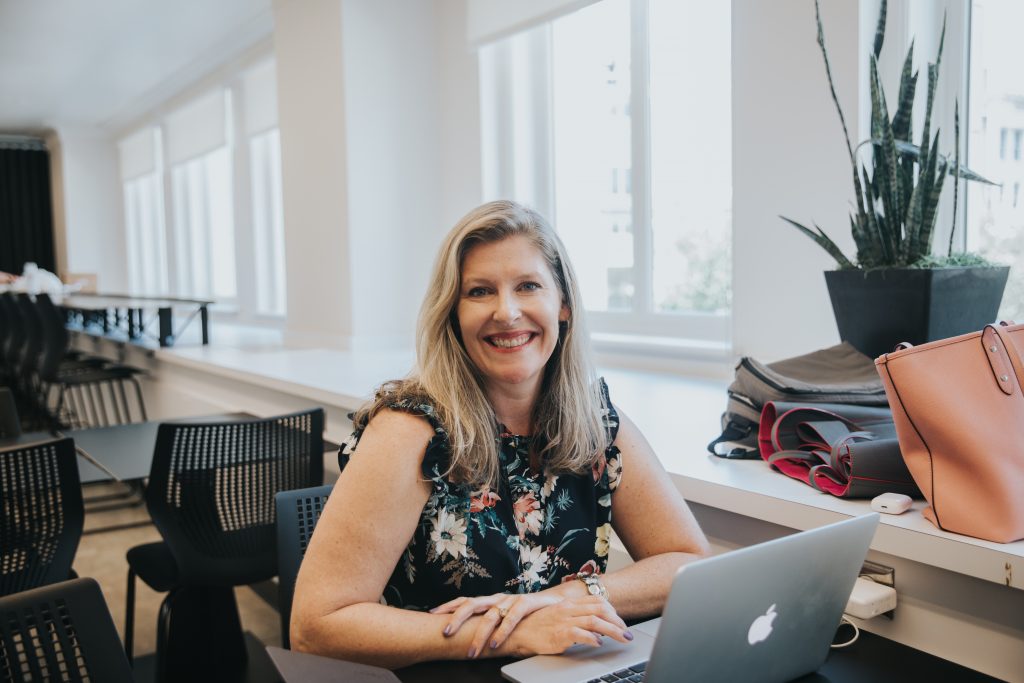
Elisa Hawkins has over twenty successful years and extensive knowledge in business to business sales, sales leadership and account management. She recently founded Sales Shyft and began working from Forge! Sales Shyft provides comprehensive sales training and coaching for organizations, teams, and individuals. We asked Elisa a few questions about her journey building her new company!
What empowered you to start Sales Shyft?
I have been in B2B sales and sales leadership for over twenty years and saw such a need for small to mid-size businesses in sales training and development. They do not have the budget that a Fortune 500 company has for sales enablement and I can bring my experience in working with and for Fortune 500 companies to their teams. It is also my mission to change the perception customers have of sales professionals. This can only be done by shifting sales professionals focus from their product and service to their customers business, solving issues and becoming a trusted business partner, not just another vendor, another sales person.
Where do you see Sales Shyft going in the next 5 years?
Sales Shyft will be serving businesses and individuals across the country with a digital and virtual platform that will accompany live training and development. We will be the leader in humanizing the sales process.
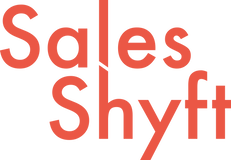
Talk to me a little bit about what your day to day looks like.
Oh my! Every day is different, which is what I love about entrepreneurship. Never a boring moment! I start my day with a nice walk while the coffee is brewing and think through my plans for the day. I spend a lot of time developing content for our training programs, content for social media and expanding my website. I also dedicate a significant portion of time toward prospecting for new clients.
What is your favorite aspect of the sales industry?
Building relationships and trusted business partnerships with my customers is the best part of a career in sales. I love people, so getting to know the human aspect of the businesses I serve is so rewarding. I am also a fierce competitor so beating the competition and winning never gets old.
Do you find having a space like Forge has been beneficial to growing your business?
Forge has been amazing for the development of my business. I am able to network with fellow business owners and Kim and Kelsey have been fantastic in helping to market Sales Shyft through Lunch and Learns, showcasing us through blogs just like this and promoting our social media posts. Owning a business is challenging and Forge has helped me to not feel so alone in the journey of building my business.


















